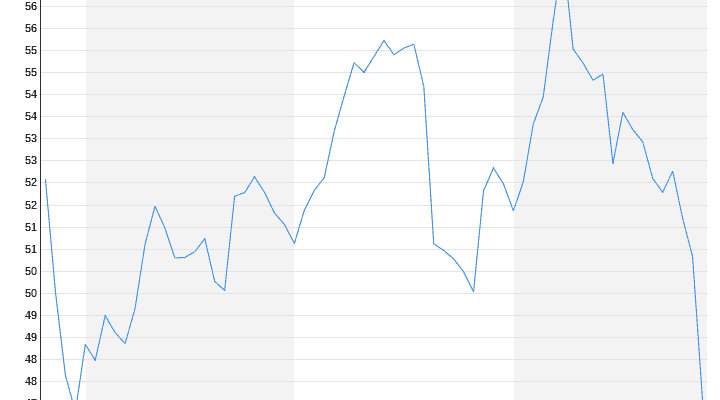The chemical company BASF is comparatively relaxed about the new corona restrictions. It is said that they primarily affect the leisure sector. Nevertheless, no longer outlook is possible. Customers are hesitant. Shareholders are preparing the company for a possible dividend cut.
BASF is sticking to its annual targets – despite the increasing number of infections and the fear of another hard lockdown. Group boss Martin Brudermüller warned, however, that further economic development could only be foreseen in the very short term. Customers ordered very carefully. "We still don't have a clear view beyond the next two months."
However, Brudermüller said that the expected new restrictions primarily affect leisure activities. "That affects less the industrial side". That is why BASF "assumes that in many parts of the world it will be the case that of course you have learned from the first wave. If that is the case, then we are fully in the outlook".
For the year as a whole, the chemical company is aiming for an adjusted operating result (EBIT) of between EUR 3.0 billion and EUR 3.3 billion after a good EUR 4.6 billion in the previous year. The turnover will decrease to 57 billion to 58 billion euros. The prerequisite, however, is that there are no renewed severe restrictions on economic activity.
Dividend probably under scrutiny
BASF had only made a new estimate for the full year at the beginning of the month after withdrawing its original outlook after the first lockdown in April. Brudermüller was confident that it would not happen again. However, the manager did not want to rule out a dividend cut – should the future macroeconomic environment reduce growth opportunities and significantly impair profitability. This will not be decided until February.
However, BASF has already adjusted its fixed assets to the foreseeable weaker macroeconomic environment and the associated lower demand in certain industry segments and made impairments of 2.8 billion euros. BASF sees its Surface Technologies business area particularly affected by the weak demand in the automotive and aerospace industries, where write-downs of one billion euros were incurred. The valuation in the Chemicals and Materials business areas was revised downwards by a further 1.3 billion – due to the oversupply of basic chemicals.
BASF has already responded to the Corona crisis with a new austerity program. Up to 2,000 jobs worldwide are to be cut for two years, in order to then bring annual savings of over 200 million euros, according to the end of September. In addition, a program has been running since the beginning of 2019 with the help of which the operating profit is to increase by two billion euros from next year. 1.4 billion of these will be realized this year.
October goes as expected
The planned separation from the pigments business will be delayed into next year as will the IPO of the oil and gas producer Wintershall Dea. In view of the lower energy prices, BASF already had to make a high depreciation on Wintershall Dea in the summer. The bottom line is that the group will not be able to avoid red numbers in 2020. The return on capital employed is only expected to be between 0 and 1 percent.
BASF published preliminary figures for the past quarter at the beginning of October. After that, value adjustments, restructuring costs and provisions totaling 3.2 billion euros resulted in a net loss of 2.1 billion euros – after 911 million euros a year earlier. At 581 million euros, EBIT before special items was better than analysts had expected, but was almost 45 percent below the previous year's figure. Adjusted EBIT is expected to rise again in the fourth quarter: "October is going as we expected," said Brudermüller.
. (tagsToTranslate) Economy (t) BASF (t) Quarterly figures (t) Dax company (t) Corona crisis (t) Dividend (t) Chemical industry
